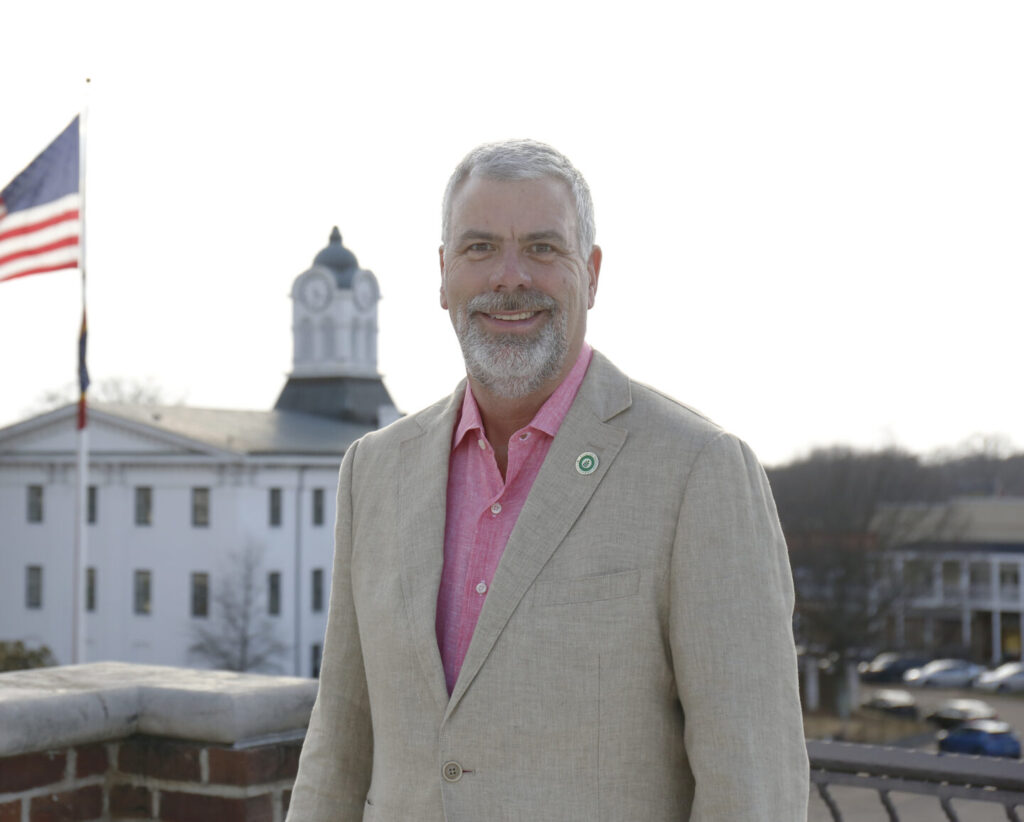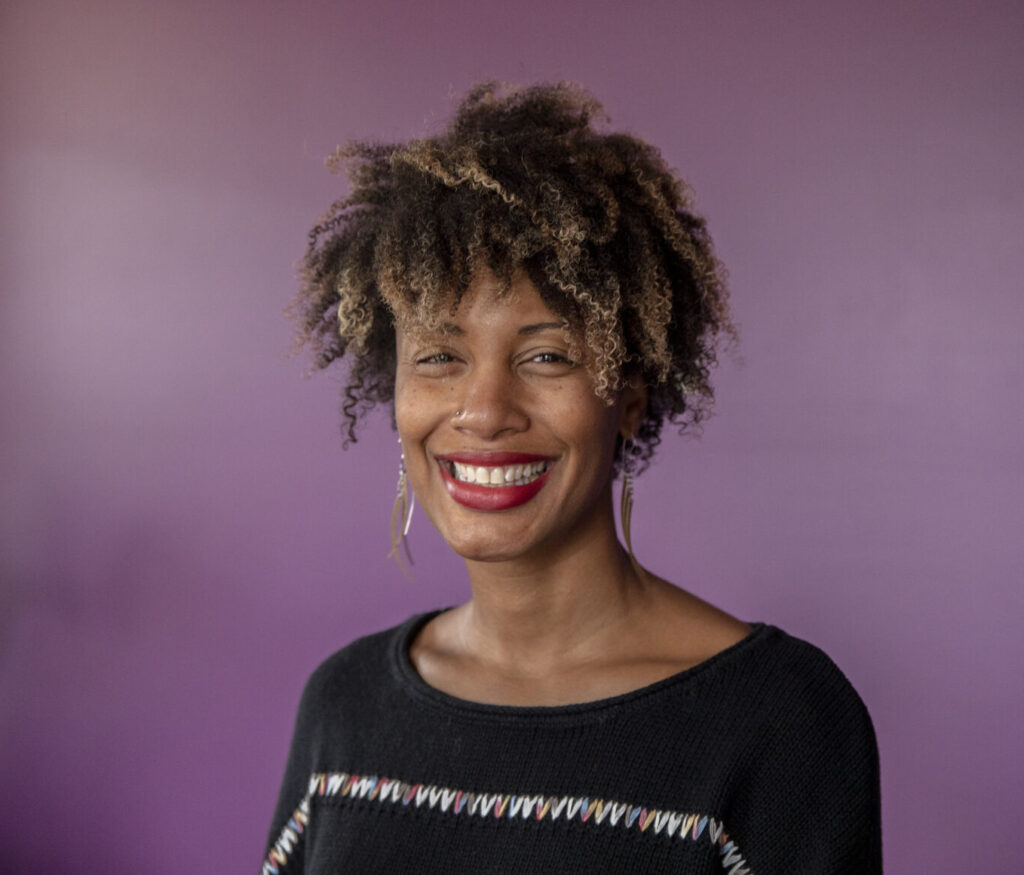The Oxford municipal general election will be June 8. Oxford residents can vote from 7 a.m. to 7 p.m. at the Oxford Conference Center for mayor and their preferred candidate for the Board of Aldermen in their respective wards.
Absentee voting can be done at City Hall through Saturday.
This week, Hotty Toddy News is publishing Q&As with each of the candidates.
Today, we hear from the two candidates vying for the Ward 2 seat on the Board of Aldermen — current Alderman Mark Huelse and challenger Afton Thomas.
Candidates are listed in alphabetical order for fairness.
***
Name: Mark Huelse
Ward: Ward 2
Age: 57
Party: Republican
Family: Married to Becki, since 1990. Becki has owned and operated Something Southern-Design and Furnishings since 1996. Son’s Family: Matt, Lisa and Nicholas (14) Scott, live here in Oxford. Matt works in the family business. Lisa works for a local attorney. Nicholas attends (school in) Oxford School District, making straight A’s.
Why did you decide to run for office?
I decided to run for alderman in January of 2017 when my then-Alderman Robyn Tannehill qualified to run for mayor of Oxford. I had numerous calls immediately after her announcement, encouraging me to seek the Ward 2 alderman position. I had been serving on Oxford Planning Commission and very involved in the Vision 2037 Land Development Plan and serving on the Ordinance Review Committee. With my past experience in the corporate world managing multi-million dollar sales accounts and budgets and my small business owner perspective, I knew I could be an asset to the city and our citizens.
What do you bring to the table for this position?
I have a BSME (Bachelor of Science in Mechanical Engineering) Degree, MBA and small business owner. I have 15 years of experience with a Fortune 100 manufacturing company, five years as Planning Commissioner, currently serving as alderman Ward 2. I bring a rational, logical, conservative, fiscally responsible approach to addressing city issues and challenges.
What do you feel is the biggest issue city leaders are facing and your thoughts on how to improve it?
Smartly managing our tremendous growth and keeping the small town feel that everyone loves about Oxford. Need to continue to work with our local business leaders, state and federal legislators to creatively find funding for our infrastructure and transportation improvement plans. All this, while continuing to provide expected level of city services and amenities without raising taxes.
If you received a $1 million grant to use for the city any way you wanted, what would you do with it and why?
I would share the grant money between the new Animal Resource Center and a desperately needed new city pool. The new Animal Resource Center was not in the 2021 budget and will require significant city financial resources. Grant money would allow us to fund this while keeping all other city services and programs at current levels. We are in desperate need of a new city pool. We have been setting money aside for the last few fiscal years. Additional grant money would accelerate the construction timeline.
Name: Afton Thomas
Ward: 2
Age: 39
Party: Democratic Party
Family: My husband is James M. Thomas, and we have two children, Olive, age 9 and Noah, age 6.
Profession: I am the associate director for programs with the Center for the Study of Southern Culture on the University of Mississippi campus.
Why did you decide to run for office?
I was asked had I ever considered public office and at the time I hadn’t. I haven’t stopped thinking about it since. I ultimately decided to run because of my involvement in Oxford nonprofits — working alongside my neighbors and serving our community. Through this work, I’ve gained an understanding of our community’s needs such as food insecurity, affordable housing, and additional local leadership support for nonprofits.
What do you bring to the table for this position?
I am collaborative and believe all ideas are made stronger when a diverse group of people is involved in the decision-making. I bring an unwavering dedication to this principle. It is not hard for me to think of, and want to include, others who are different from me. Whether those differences are religious, cultural or even political. I live with, and love, those differences every day in my own home. I’m a firm believer that no single person has all the answers. Likewise, no single problem is too great when we come together to solve it. As a member of Lafayette-Oxford-University Excel By 5, I saw firsthand what a truly collaborative effort can accomplish. Oxford’s children are more school-ready, healthier, and happier because of our collective efforts.
The experiences and perspectives of all Oxford residents matter to me. I am committed to ensuring that everyday people always have a seat at any table where decisions are being made. I will not only listen. I will make sure that others hear your issues, your concerns, and your ideas, too.
What do you feel is the biggest issue city leaders are facing and your thoughts on how to improve it?
By far, Oxford’s single greatest challenge is our lack of affordable housing. And while our local government has made some efforts to tackle this challenge, we have so much more to do.
According to the (U.S. Census Bureau), the median home value in our community has increased by 14 percent over the past 15 years. Meanwhile, the typical rent for a modest two-bedroom home has increased by roughly 30 percent. Yet for most of our local workforce, wages have remained flat. Simply put, this is not sustainable. Because of rising rents, a full-time worker in Oxford needs to earn $17.35 per hour just to afford a modest two-bedroom home.
As your next Ward 2 alderperson, I will work with our city’s staff and budget officers to develop a step pay plan that will institutionalize this rate as the new wage floor for all city employees. Furthermore, I will advocate for efforts on behalf of the city of Oxford to contract with vendors who present proposals that guarantee this wage floor to their employees.
Our other big challenge concerns the lack of strong partnerships between our extensive nonprofit community and our local government. We have a tremendous nonprofit community in Oxford. Through the work of these community-based organizations, we have increased children’s literacy, decreased food insecurity, and improved our community’s health and wellbeing. Imagine how much more we could do by leveraging some of our city’s existing resources in service of this work.
I will also partner with community-based organizations to author an ordinance for the establishment of a housing trust fund and identify the best ways to use this fund to create more affordable housing opportunities for low-income households.
Finally, I will advocate for providing more material support for our community-based organizations and work to build a stronger culture of collaboration between those organizations and our local government.
If you received a $1 million grant to use for the city any way you wanted, what would you do with it and why?
I am committed to out-of-the-box thinking to help combat Oxford’s affordable housing problem. Currently, the city offers tax and construction incentives to developers interested in building affordable homes. Developers can also try to take advantage of limited and competitive federal dollars available through the Low Income Housing Tax Credit program to build affordable housing, so long as they partner with a nonprofit entity in the community.
With this $1 million grant, I would seed an affordable housing trust fund. A housing trust fund is a distinct fund established by local or state government that receives ongoing dedicated sources of public funding to support the preservation and production of affordable housing and is meant to increase opportunities for families and individuals to access quality, affordable homes. In addition to purchasing land to build affordable housing in Oxford, this fund could be used for a variety of simultaneous programs including those that assist with home buyer down payments, home buyer education, resources for renters, and home repair grants.
The $1 million grant would be a start, but the city would need to discuss and vote on sustainable public dollars that could be allocated to the fund annually. Ideally, when the city becomes serious about establishing this fund, the board will work with local nonprofits that specialize in housing, such as LOU-Home, to develop a policy and plan for a housing trust fund advisory committee that would be responsible for studies, reviews, fact-findings, and recommendations.



